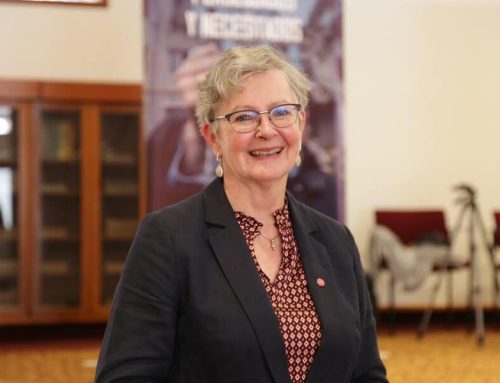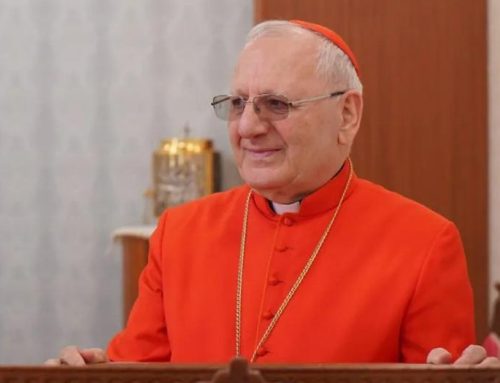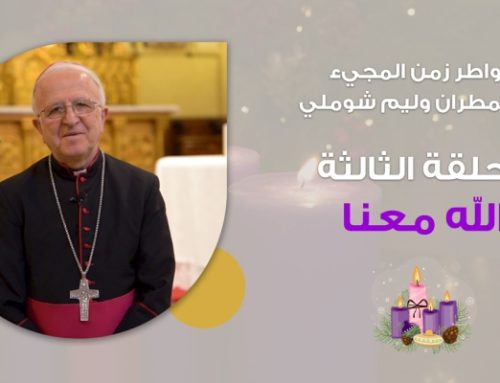HCEF
The HCEF Outreach to Palestinian Educators (HOPE) project hosted its first special education workshop bringing educators from the University of Cincinnati’s School of Education to work with Palestinian educators. The HOPE Instructional Strategies pilot project partnered with Latin Patriarchate Schools to explore specific academic and behavioral instructional strategies aimed at deepening the teachers’ understanding of the increasingly diverse learners in their classrooms.
 The highly interactive exchange in large and small group arrangements incorporated both the knowledge and experience of the teachers in their classrooms as well as the knowledge base of the presenters regarding academic and behavioral interventions and strategies needed to support and increase student success Dr. Stephen D. Kroeger, Associate Professor of Education at the University of Cincinnati and a expert in Special Education, and Stephanie Amsbary, M.Ed., literacy specialist and teacher for the Cincinnati, Ohio, public schools, presented the instructional strategies course to 28 Palestinian educators including principals, vice-principals, social workers and school system administrators from throughout the West Bank.
The highly interactive exchange in large and small group arrangements incorporated both the knowledge and experience of the teachers in their classrooms as well as the knowledge base of the presenters regarding academic and behavioral interventions and strategies needed to support and increase student success Dr. Stephen D. Kroeger, Associate Professor of Education at the University of Cincinnati and a expert in Special Education, and Stephanie Amsbary, M.Ed., literacy specialist and teacher for the Cincinnati, Ohio, public schools, presented the instructional strategies course to 28 Palestinian educators including principals, vice-principals, social workers and school system administrators from throughout the West Bank.
The intensive program, held June 28 – 30, was conducted at the HCEF Ecumenical Center for Research and Development (ECRD) in Bethlehem. Aimed at increasing teacher capacity to address the learning needs of children who experience significant gaps in their academic achievement, the instructional strategies course featured
comprehensive workshops and coaching sessions on analysis of student work, use of flexible and multiple teaching methods, and working together to build educational teams . High priority was placed on building strategies to recognize and respond to the student diversity in their classrooms.
Dr. Kroeger noted: “Teachers report that their classrooms are composed of an increased range of student diversity and need. Teachers describe a need for their own learning to support students, including those with identified and unidentified learning disabilities.” As the week unfolded, teachers moved from defining special education and the behavioral needs in their classrooms to developing school teams that will actively address complex issues. The participants confirmed their desire to share the new concepts and strategies with other Palestinian educators and to initiate the development of special needs programs in their respective schools so that all children can learn.
 A key partner in HOPE is the Archdiocese of Cincinnati, Ohio. Two years ago, the Palestinian teachers and administrators communicated their need for special education programs to representatives of the Archdiocese. Since that experience, the Archdiocese has been developing programs, building resources and raising funds to provide the HOPE Instructional Strategies course. Nancy Hemminger, whose vision and dedication were the driving force behind HOPE, shared that: “This is just the beginning, but we need more! The vision has become a reality, but the reality needs to grow for the benefit of the children.”
A key partner in HOPE is the Archdiocese of Cincinnati, Ohio. Two years ago, the Palestinian teachers and administrators communicated their need for special education programs to representatives of the Archdiocese. Since that experience, the Archdiocese has been developing programs, building resources and raising funds to provide the HOPE Instructional Strategies course. Nancy Hemminger, whose vision and dedication were the driving force behind HOPE, shared that: “This is just the beginning, but we need more! The vision has become a reality, but the reality needs to grow for the benefit of the children.”
 Patricia Parma, M.A., L.P.C., Counselor /Associate Professor of Student Development at Palo Alto College in San Antonio, Texas, and HCEF Board of Director expressed HCEF’s desire to extend the HOPE project and build a consortium of partners: “We believe that all children have the right to learn and grow to their full capacity. That requires a team approach: parents, teachers, social workers and administrators. Universities must also take a lead through teacher preparation, curriculum development, and research. HCEF is committed to facilitating professional development for the educators of Palestine and our goal is to broaden the training opportunities to include other school systems. The HOPE in-service was conducted as a means of determining the needs of the educators and the feasibility of continued support from the University of Cincinnati, the Archdiocese of Cincinnati and other partners.”
Patricia Parma, M.A., L.P.C., Counselor /Associate Professor of Student Development at Palo Alto College in San Antonio, Texas, and HCEF Board of Director expressed HCEF’s desire to extend the HOPE project and build a consortium of partners: “We believe that all children have the right to learn and grow to their full capacity. That requires a team approach: parents, teachers, social workers and administrators. Universities must also take a lead through teacher preparation, curriculum development, and research. HCEF is committed to facilitating professional development for the educators of Palestine and our goal is to broaden the training opportunities to include other school systems. The HOPE in-service was conducted as a means of determining the needs of the educators and the feasibility of continued support from the University of Cincinnati, the Archdiocese of Cincinnati and other partners.”
 As a result of the HOPE Instructional Strategies course, HCEF identified the need for ongoing professional development opportunities for current teachers as well as strengthening teacher training in the Palestinian universities. HCEF is currently developing partnerships between U.S. and Palestinian universities, professional organizations, and individuals with expertise in special education in an effort to fully engage Palestinian educators in the comprehensive reform required to meet the diverse educational needs of children within their classrooms.
As a result of the HOPE Instructional Strategies course, HCEF identified the need for ongoing professional development opportunities for current teachers as well as strengthening teacher training in the Palestinian universities. HCEF is currently developing partnerships between U.S. and Palestinian universities, professional organizations, and individuals with expertise in special education in an effort to fully engage Palestinian educators in the comprehensive reform required to meet the diverse educational needs of children within their classrooms.
Click on this link to visit the Cincinnati Pilgrims blog, or visit us at www.hcef.org for more information about HCEF and its programs.









